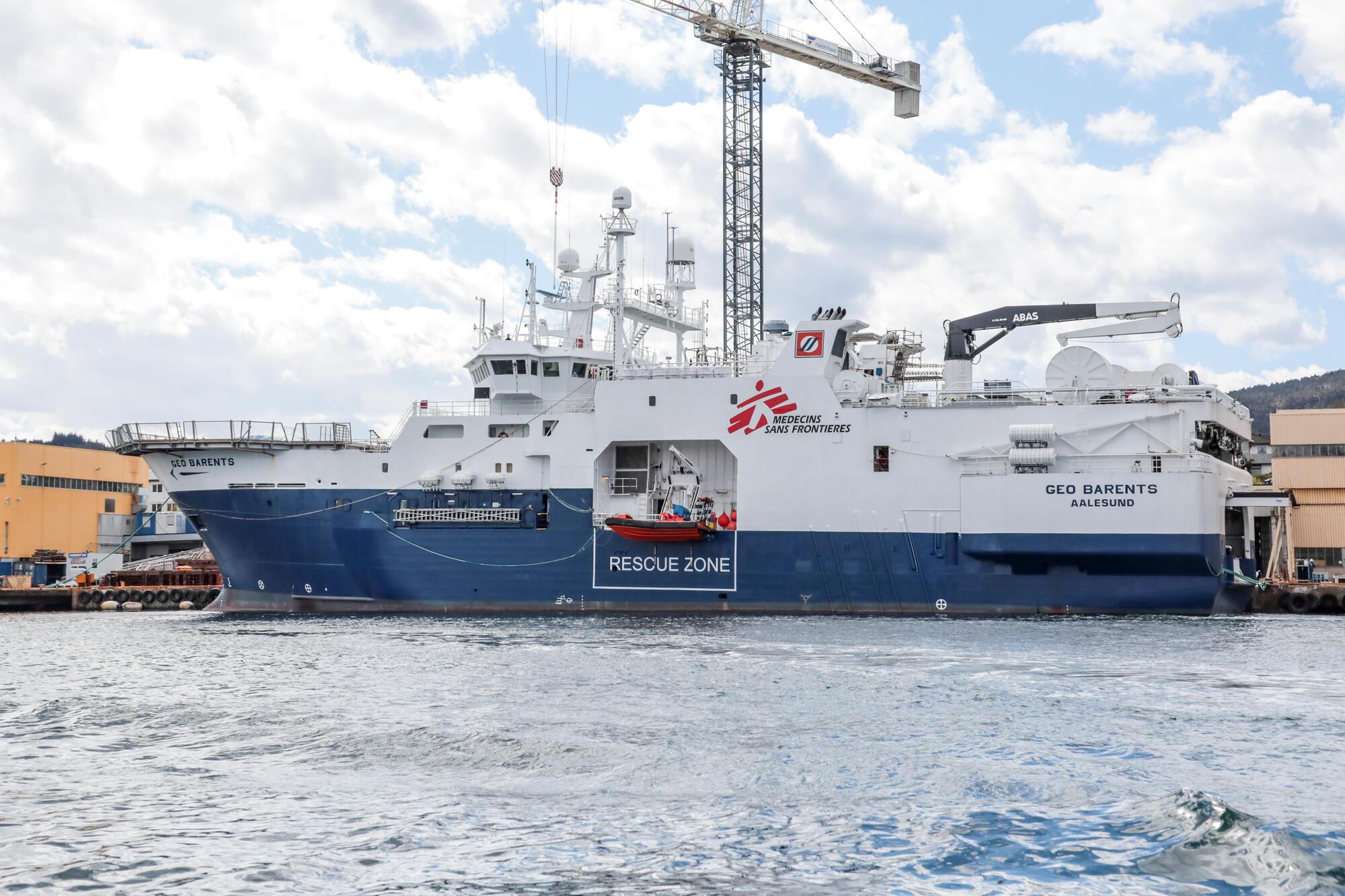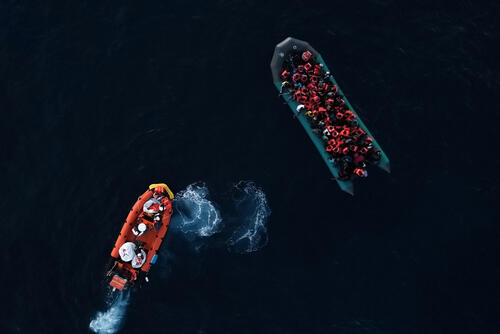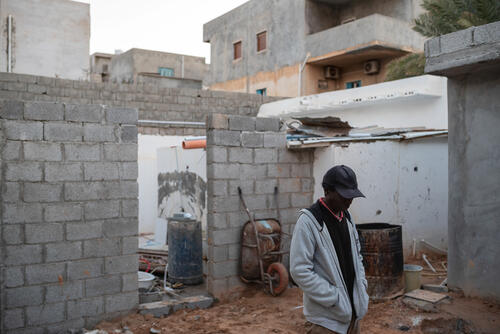- As people continue to drown crossing the central Mediterranean Sea, MSF will be returning to search and rescue activities.
- MSF will be saving the lives of people in distress trying to leave Libya, using our own chartered ship, the Geo Barents.
- We urge EU governments to end their support to the Libyan coastguard and to re-engage in state-led proactive search and rescue.
Amsterdam – Médecins Sans Frontières (MSF) announces today the relaunch of its search and rescue activities in the central Mediterranean Sea to save the lives of refugees and migrants attempting the deadly sea crossing from Libya.
Since 2015, MSF medical teams working on search and rescue ships have witnessed with horror the human tragedy unfolding on Europe’s doorstep, as thousands of people drown at sea or are forcibly returned to horrific conditions in Libya. This time MSF is chartering our own ship, the Geo Barents, to rescue people in danger and provide them with emergency medical care.
“Our return to sea is the direct result of Europe’s reckless policies of non-assistance at sea which are condemning people to die,” says Ellen van der Velden, MSF’s operations manager for search and rescue.
EU support to the business of suffering should stop immediately. European member states must ensure a dedicated proactive state-led search and rescue mechanism is urgently relaunched in the central Mediterranean.Ellen van der Velden, MSF operations manager for search and rescue
So far this year, more than 500 people have died attempting to cross the central Mediterranean. A terrible shipwreck occurred on 22 April and claimed at least 130 lives. Those who do not die at sea risk being intercepted off the Libyan coast by the EU-supported Libyan coastguard and forcibly returned to Libya.
Most people who are returned to Libya are arbitrarily locked up in dangerous detention centres, where they are exposed to life-threatening risks such as ill-treatment, sexual violence, exploitation and even death.
“Over the years, European governments have progressively disengaged from proactive search and rescue in the central Mediterranean, have failed to assist people in danger and have deliberately hindered, if not criminalised, the much-needed work of search and rescue NGOs,” says van der Velden. “These policies have abandoned thousands of men, women and children to drift at sea and to drown on Europe’s southern border.”
MSF calls for an end to EU support to the Libyan coastguard and to people being forcibly returned to Libya.
“We will not stay silent in the face of this manmade disaster,” says van der Velden. “EU support to the business of suffering should stop immediately. European member states must ensure a dedicated proactive state-led search and rescue mechanism is urgently relaunched in the central Mediterranean.”
For the past 50 years, MSF has been providing emergency humanitarian and medical aid to people in some of the world's most challenging crises. Today we are going back at sea to fulfil the humanitarian imperative of saving lives.
Since launching search and rescue activities in 2015, MSF has sent medical teams on board seven rescue ships, at times operating the vessels in partnership with other organisations. In total, MSF teams have participated in 682 search and rescue operations and assisted more than 81,000 people.
The M/V Geo Barents has been chartered by MSF from Uksnøy & Co AS. Built in 2007, she was previously used as a seismic vessel and is sailing under the Norwegian flag.
The ship has undertaken necessary modifications to be compliant for search and rescue purposes. The ship’s overall length is 76.95 metres long. It has two decks for survivors; one for men and one for women and children. There is a clinic, a midwife’s room, and an observation room for all the medical activities that our teams will undertake. The ship has two fast rescue boats to launch during rescue activities.






